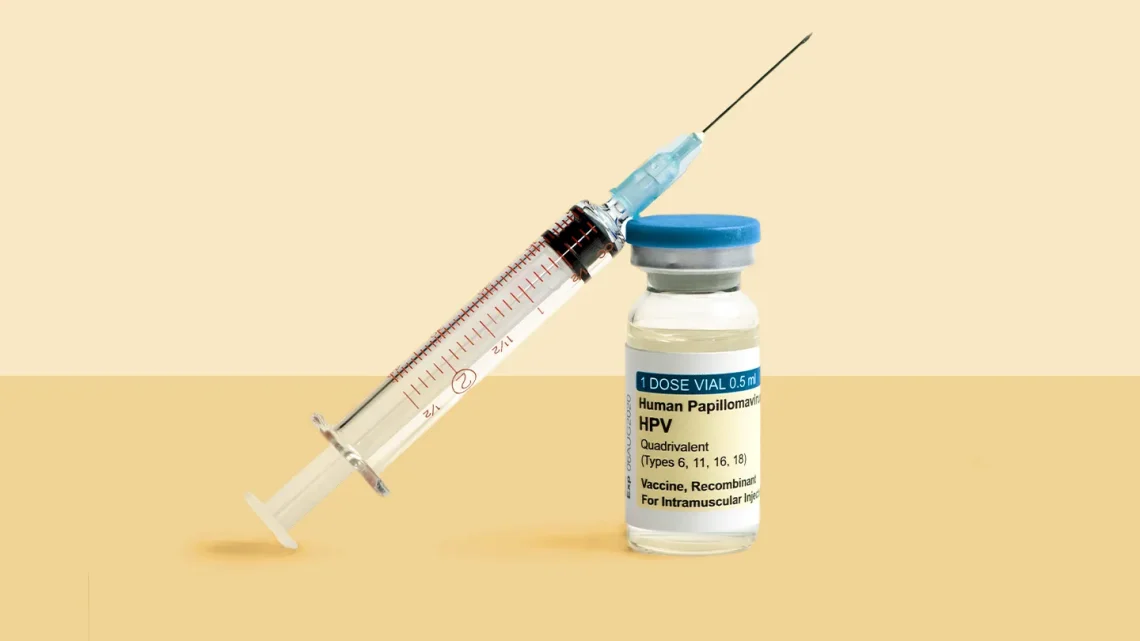Introduction
Human Papillomavirus (HPV) is one of the most common sexually transmitted infections worldwide. While many HPV infections resolve on their own, some types can lead to serious health problems, including cervical cancer, other genital cancers, and oropharyngeal cancers. The HPV vaccine offers powerful protection against the most harmful strains of the virus and has become a key component of cancer prevention strategies globally. Understanding who should get the vaccine, how effective it is, and its safety profile is crucial for informed decision-making by individuals, parents, and healthcare providers.
What Is HPV and Why Is Vaccination Important?
HPV is a group of over 200 related viruses, with more than 40 types transmitted through direct sexual contact. While low-risk types can cause warts, high-risk types—particularly HPV 16 and 18—are responsible for the majority of HPV-related cancers.
The HPV vaccine targets the most dangerous strains and has been proven to prevent:
- Cervical cancer
- Vaginal and vulvar cancers
- Anal cancer
- Penile cancer
- Oropharyngeal (throat) cancers
- Genital warts
Vaccination is most effective when given before exposure to the virus, which is why age guidelines are so important.
Recommended Age Guidelines for HPV Vaccination
Children and Adolescents (Ages 9–14)
- Ideal age: 11–12 years
- Can be started as early as age 9.
- Requires 2 doses (at least 6 months apart) for full protection.
Teens and Young Adults (Ages 15–26)
- If the vaccine series starts at age 15 or later, 3 doses are needed.
- Vaccination is strongly recommended for all individuals up to age 26 who haven’t been fully vaccinated.
Adults (Ages 27–45)
- The vaccine is not routinely recommended in this age group but may be considered in consultation with a doctor.
- Effectiveness is lower due to the higher likelihood of previous HPV exposure.
Types of HPV Vaccines
Three HPV vaccines have been developed, but Gardasil 9 is the only one currently used widely today:
- Gardasil 9 protects against 9 HPV types, including 7 high-risk types and 2 low-risk types that cause genital warts.
Previous vaccines (Gardasil and Cervarix) covered fewer strains and are now largely phased out in many regions.
Effectiveness of the HPV Vaccine
The HPV vaccine has shown remarkable effectiveness, especially when given before exposure to the virus:
- Nearly 100% effective in preventing infection with HPV types covered by the vaccine.
- Significant reductions in cervical precancers, genital warts, and HPV infections have been documented in countries with high vaccination rates.
- Long-term studies show lasting immunity for at least 10–15 years with no need for a booster so far.
Countries like Australia, which implemented aggressive school-based vaccination programs, are seeing dramatic declines in HPV-related diseases and are on track to eliminate cervical cancer as a public health issue.
Is the HPV Vaccine Safe?
Yes—extensive research and monitoring have confirmed that the HPV vaccine is safe and well-tolerated.
Common Mild Side Effects:
- Pain, redness, or swelling at the injection site
- Fever
- Headache
- Fatigue
- Nausea or dizziness
Rare Risks:
- Fainting (mostly in adolescents—sitting or lying down during vaccination is recommended)
- Severe allergic reactions (extremely rare; individuals with yeast or latex allergies should discuss with their provider)
More than 15 years of global use and millions of doses administered have shown no evidence of long-term side effects or impact on fertility.
Addressing Common Concerns and Myths
1. Does the vaccine encourage early sexual activity?
No. Studies show no increase in sexual activity after vaccination. It’s a preventive health measure, like any other childhood immunization.
2. Can I get the vaccine if I’m already sexually active?
Yes, but it may be less effective because you may have already been exposed to some HPV types. It still protects against types you haven’t encountered.
3. Can boys and men get the HPV vaccine?
Absolutely. Vaccinating males helps prevent genital warts, anal and throat cancers, and also reduces virus transmission to partners.
Why Early Vaccination Matters
Vaccinating at ages 11–12 ensures:
- Protection before exposure through sexual activity
- A stronger immune response in preteens
- Lower risk of HPV-related diseases later in life
Early vaccination leads to a greater public health impact, including the potential eradication of certain HPV-related cancers.
Global Vaccination Efforts and Challenges
- The World Health Organization aims to eliminate cervical cancer through 90% HPV vaccination coverage.
- Many high-income countries have integrated HPV vaccination into national immunization programs.
- Challenges in low- and middle-income countries include vaccine cost, logistics, and public awareness.
Efforts like Gavi’s support for HPV vaccine rollouts are helping bridge these gaps.
Conclusion
The HPV vaccine is a powerful, safe, and effective tool in the fight against several preventable cancers and diseases. Vaccinating boys and girls before they are exposed to the virus maximizes protection and helps build herd immunity. With global cooperation and public health commitment, we can move closer to a world where cervical and other HPV-related cancers become a rarity. Parents, healthcare providers, and policymakers all play a crucial role in raising awareness, promoting timely vaccination, and safeguarding future generations.
FAQs:
What is the ideal age for the HPV vaccine?
The HPV vaccine is best given at ages 11–12, but can start as early as age 9.
Is the HPV vaccine safe?
Yes, it has been proven safe and well-tolerated, with only mild side effects like arm soreness or headache.
Do boys need the HPV vaccine too?
Yes, boys and men benefit from the vaccine by preventing genital warts and several cancers.
Can adults get the HPV vaccine?
Adults up to the age of 26 should get vaccinated if they haven’t already; those aged 27–45 may consider it after consulting with a doctor.
Does the vaccine work if someone is already sexually active?
Yes, it can still protect against HPV types you haven’t been exposed to, though it’s most effective when given before any sexual activity.






